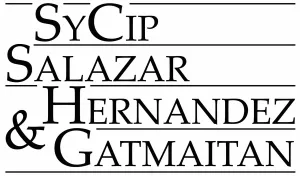- within Corporate/Commercial Law topic(s)
- within Corporate/Commercial Law topic(s)
This bulletin was prepared by SyCipLaw?s Corporate Services Department. Marietta A. Tibayan, Bhong Paulo A. Macasaet, and Alithea C. Soriano assisted in the preparation of this bulletin.
In an April 2025 decision, the Supreme Court clarified the evidentiary value of the General Information Sheet ("GIS") in proving shareholding in a corporation. The Supreme Court ruled that the GIS, by itself, is not sufficient proof of stock ownership, reaffirming that the stock and transfer book ("STB") is the controlling record of shareholders. The decision underscores the importance of complying with correct corporate record-keeping and transfer procedures to avoid disputes on share ownership in a corporation.
Does the GIS serve as valid proof of shareholding in a company?
No. In Lopez v. Lopez (G.R. Nos. 254957-58, April 21, 2025), the Supreme Court considered the evidentiary value of the GIS in determining shareholding and held that it is not sufficient on its own to prove stock ownership.
The case stemmed from two consolidated intra-corporate election contests filed by Lily C. Lopez ("Lily") and her group, who challenged the validity of special stockholders' meetings and the election of corporate directors in family-owned corporations, including LC Lopez Resources, Inc. ("LC Lopez") and Conqueror Industrial Corporation ("Conqueror"). Lily and her group alleged, among others, that members of her group were wrongfully excluded from participating in the LC Lopez and Conqueror stockholders' meetings on the ground that they were not listed in the corporations? STBs, even though they appeared as stockholders in the GIS filed with the SEC.
The Supreme Court reiterated its previous rulings that, as a rule, the STB is the primary basis for determining the shareholders of a corporation, as it is only when the transfer of shares has been recorded in the STB that a corporation may rightfully regard the transferee as one of its stockholders, citing Section 63 of the Corporation Code (Section 62 of the Revised Corporation Code) to this effect. The mere inclusion as a shareholder in the GIS of a corporation is by itself insufficient proof that such person is a shareholder. Between the STB and the GIS, the former is controlling. The Court noted that entries in the GIS may be erroneous due to, among others, human error or negligence, and that such errors cannot confer shareholder status and cannot substitute for compliance with the procedural requirements for valid stock transfers.
Here, although the GIS of LC Lopez and Conqueror listed members of Lily's group as stockholders, their names do not appear as stockholders in the STBs of these corporations. The Supreme Court then indicated that these individuals should have submitted additional evidence to prove stockholding. Citing Lao v. Lao (G.R. No. 170585, October 6, 2008), the Supreme Court said that the best proof would have been a stock certificate issued in the individual's name. Absent a stock certificate, the other documentary evidence that would successfully overcome corporate records and prove that one is a stockholder is any evidence that would show how the alleged stockholder acquired or came into ownership of the shares of stock. If there is no documentary evidence of this nature, one must, at the very least, prove that they possess the stock certificates in the name of the alleged transferor.
The Supreme Court found that members of Lily's group did not present any stock certificates, deeds of assignment, or other credible documentation to show how they acquired shares in the corporations. The testimonial evidence offered to support their inclusion in the GIS was found insufficient to rebut the entries in the STBs, especially absent any showing of transfer documents or possession of stock certificates in the names of prior owners.
Consequently, the Supreme Court held that Lily's group members were not stockholders of LC Lopez or Conqueror, and their exclusion from the meetings did not affect the existence of a quorum. As such, the special stockholders? meetings and elections in those corporations were deemed valid.
The content of this article is intended to provide a general guide to the subject matter. Specialist advice should be sought about your specific circumstances.

